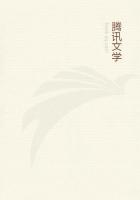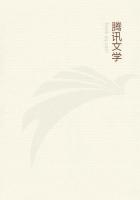To give an account of one's reading is in some sort to give an account of one's life; and I hope that I shall not offend those who follow me in these papers, if I cannot help speaking of myself in speaking of the authors I must call my masters: my masters not because they taught me this or that directly, but because I had such delight in them that I could not fail to teach myself from them whatever I was capable of learning. I do not know whether I have been what people call a great reader; I cannot claim even to have been a very wise reader; but I have always been conscious of a high purpose to read much more, and more discreetly, than I have ever really done, and probably it is from the vantage-ground of this good intention that I shall sometimes be found writing here rather than from the facts of the case.
But I am pretty sure that I began right, and that if I had always kept the lofty level which I struck at the outset I should have the right to use authority in these reminiscences without a bad conscience. I shall try not to use authority, however, and I do not expect to speak here of all my reading, whether it has been much or little, but only of those books, or of those authors that I have felt a genuine passion for. I have known such passions at every period of my life, but it is mainly of the loves of my youth that I shall write, and I shall write all the more frankly because my own youth now seems to me rather more alien than that of any other person.
I think that I came of a reading race, which has always loved literature in a way, and in spite of varying fortunes and many changes. From a letter of my great-grandmother's written to a stubborn daughter upon some unfilial behavior, like running away to be married, I suspect that she was fond of the high-colored fiction of her day, for she tells the wilful child that she has "planted a dagger in her mother's heart," and I should not be surprised if it were from this fine-languaged lady that my grandfather derived his taste for poetry rather than from his father, who was of a worldly wiser mind. To be sure, he became a Friend by Convincement as the Quakers say, and so I cannot imagine that he was altogether worldly; but he had an eye to the main chance: he founded the industry of ****** flannels in the little Welsh town where he lived, and he seems to have grown richer, for his day and place, than any of us have since grown for ours. My grandfather, indeed, was concerned chiefly in getting away from the world and its wickedness. He came to this country early in the nineteenth century and settled his family in a log-cabin in the Ohio woods, that they might be safe from the sinister influences of the village where he was managing some woollen-mills. But he kept his affection for certain poets of the graver, not to say gloomier sort, and he must have suffered his children to read them, pending that great question of their souls' salvation which was a lifelong trouble to him.
My father, at any rate, had such a decided bent in the direction of literature, that he was not content in any of his several economical experiments till he became the editor of a newspaper, which was then the sole means of satisfying a literary passion. His paper, at the date when I began to know him, was a living, comfortable and decent, but without the least promise of wealth in it, or the hope even of a much better condition. I think now that he was wise not to care for the advancement which most of us have our hearts set upon, and that it was one of his finest qualities that he was content with a lot in life where he was not exempt from work with his hands, and yet where he was not so pressed by need but he could give himself at will not only to the things of the spirit, but the things of the mind too. After a season of scepticism he had become a religious man, like the rest of his race, but in his own fashion, which was not at all the fashion of my grandfather: a Friend who had married out of Meeting, and had ended a perfervid Methodist. My father, who could never get himself converted at any of the camp-meetings where my grandfather often led the forces of prayer to his support, and had at last to be given up in despair, fell in with the writings of Emanuel Swedenborg, and embraced the doctrine of that philosopher with a content that has lasted him all the days of his many years. Ever since I can remember, the works of Swedenborg formed a large part of his library;
he read them much himself, and much to my mother, and occasionally a "Memorable Relation" from them to us children. But he did not force them upon our notice, nor urge us to read them, and I think this was very well. I suppose his conscience and his reason kept him from doing so.
But in regard to other books, his fondness was too much for him, and when I began to show a liking for literature he was eager to guide my choice.















